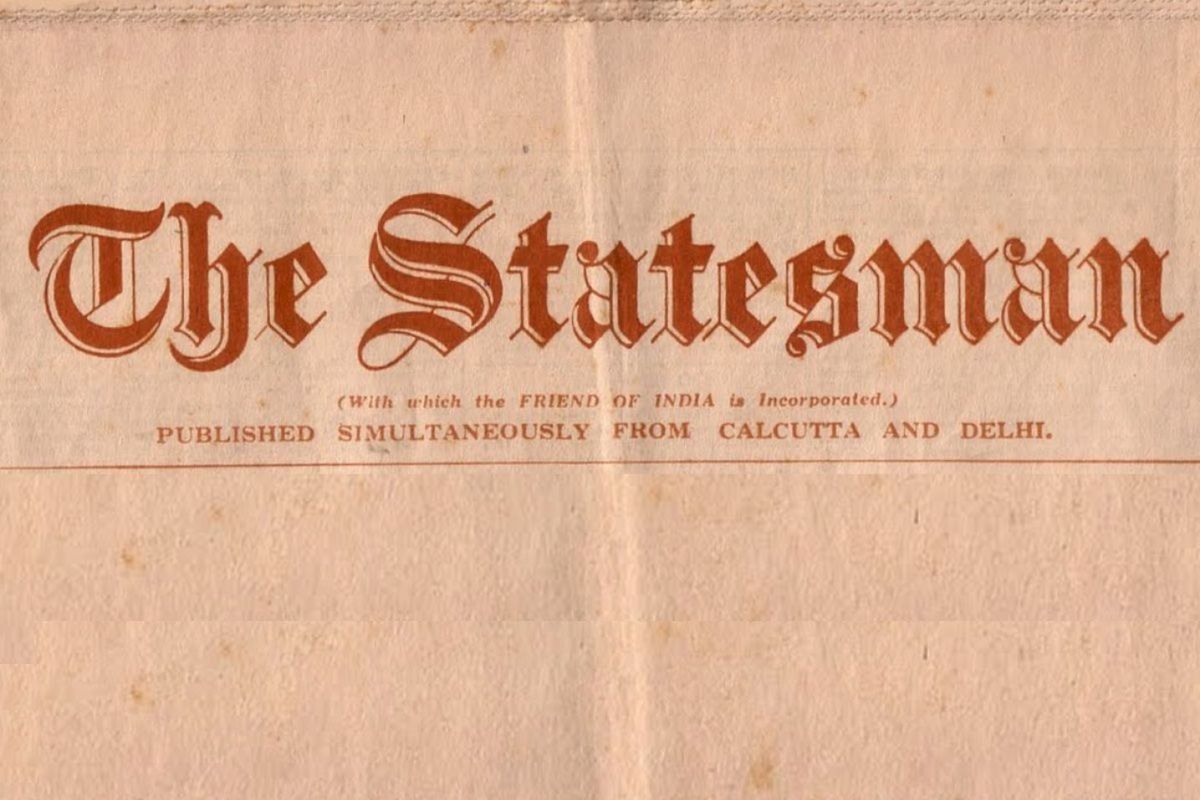Leading women personalities on what it takes to be a woman!
On International Women's Day, The Statesman talked to esteemed women personalities from various fields on what it takes to be a woman in our country and what empowers them.
On this day a century ago, these were some of the news items The Statesman readers got to read about India and the world.

OCCASIONAL NOTE
It is a well-known fact that under the early Buddhistic emperors of India more attention was paid to medical relief than in any succeeding period until British rule was established. In a medical journal which is published in Bangkok in connection with the Siam Red Cross, there is a detailed account of the system of medical relief that was organised in Siam in the twelfth century in the reign of Jayavarman, who was a fervent Buddhist. One of the chief objects of this monarch was to cover his empire with a network of hospitals. Inscriptions in Sanskrit have been found, dated 1186 A.D., showing that at least 102 hospitals were at that time established. To produce the rice alone for these hospitals, both for offerings to the patron deities and for food for the patients, 81,640 men and women were employed. Each hospital was furnished with a staff of 32 paid workers, and in addition there were 66 workers living at their own expense. The staff included two physicians, each of whom had one male and two female servants; two storekeepers who distributed medicine; two cooks; two servants charged with the duty of preparing offerings to Buddha; fourteen “infirmarians” who administered remedies; six women who heated water and pounded medicaments; and two women who husked rice.
Advertisement
CO-OPERATIVE SOCIETY TREASURER ON TRIAL
Advertisement
OORGAUM, SEPT 12
Inspector Anderson today produced Dennis Patton, late accountant and assistant cashier, Oorgaum Gold Mine, and secretary and treasurer of the Oorgaum Mines Co-operative Society, before Mr. Reginald Bocquet, Justice of the Peace, and produced two separate charge sheets against the accused under Sections 508 and 477A, I.P.C. (criminal breach of trust and falsifying accounts). The first charge is in connection with the alleged misappropriation of Rs 2,900 deposited in June, 1917, by Mr. Gervasone Emilio, which is entered in the pass book but not in the society’s accounts. The second refers to three transactions during 1918, viz. Rs 210 credited in Mr. Emilio’s pass book but not in the accounts book, Rs 100 credited in Mr. C.R. Wilkinson’s books, and a further Rs 1,000 deposited by Mr. Emilio. The case was postponed until Wednesday, the 17th instant.
RANGOON TRAGEDY
RANGOON, SEPT 12
Maung Thein, editor of a newly started Burmese vernacular paper known as the New Light of Burma was stabbed last night in a street close to the railway station by a criminal who also stabbed one of Maung Thein’s companions. Maung Thein died in hospital soon after admission. His assailant was secured by the bystanders and the police. The deceased was about 50 years old and had written vigorously on Burma’s political problems. It is reported that the arrested man in 1908 held up a quarter of Rangoon and was only captured by a strong fore of police. He was sentenced to ten years’ imprisonment and was released early this year.
PEACOCK THRONE
In a letter to the Times, Lord Curzon says he fears that the story about the “peacock throne” is only a myth. He says the throne was broken up after the murder of Nadir Shah in 1747, and the surviving fragments were inserted in the throne now in the museum of the royal palace at Teheran, of Yusuf Ali. He suggests that if the throne is the genuine throne, or even a portion of it, it should be acquired for Delhi by the Government of India, and the princes and people of India. He says that the price mentioned, if it is not an underestimate, must mean that the throne as it now exists is only a portion of the original throne.
THE EXPORT DUTY ON HIDES
RANGOON, SEPT 12
Burma exporters of hides protest strongly that the new duty will injure the trade while no benefit is likely to accrue to the province. Burma hides are sent largely to America in completion with other countries. Burma buffalo hides, though excellent in quality, will have difficulty in competing with Java and China where no export duty is levied. The tanning enterprise in Burma is not altogether satisfactory, as labour must be imported and local tanning materials, though good, are not cheap. Buyers have suspended buying until the effects of the duty are understood. Trade must suffer for some time and the exchange difficulty is enhanced by export duty. The prices of hides recently rose owing to the break-up of a group of Chulia buyers who collected hides through the province for sale to exporters.
Advertisement